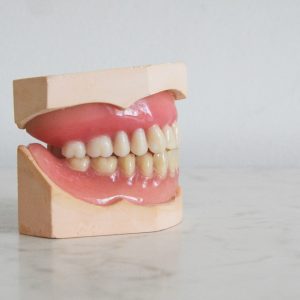We all know that hypochondriacs are afraid of getting a serious illness or having a serious illness. But, what about other types of illnesses besides just physical illnesses? There are some hypochondriacs who may worry about having a mental illness. Even if they do not currently have that mental illness! But is it even possible to be a hypochondriac for mental illness? Absolutely, yes! Here are some common ways in which it’s possible to be a hypochondriac for mental illness:
Depression
Some hypochondriacs are worried about having or developing depression. Depression is a serious medical condition that can lead to a variety of emotional and physical problems. Hypochondriacs may worry that they are depressed because they have some of the symptoms of depression. For example: feeling sad or blue, having trouble sleeping, or losing interest in activities they once enjoyed. However, not all hypochondriacs are depressed, as many of these symptoms overlap with having hypochondria itself.
If a hypochondriac thinks they are depressed, they should visit a psychiatrist, psychologist, or other licensed mental health professional to rule out the condition.
Bipolar Disorder
Some hypochondriacs are worried about having or developing bipolar disorder. They believe that they may have the disorder because they have some of the symptoms. These symptoms include mood swings, depression, and anxiety; these symptoms usually include experiencing very high highs and very low lows. People with bipolar disorder may also have trouble sleeping and concentrating. This can often overlap with hypochondriacs, who may have a hard time sleeping and concentrating. This is often due to the fact that they’re so worried about what conditions they may or may not have.
If a hypochondriac thinks they have bipolar disorder, they should visit a psychiatrist, psychologist, or other licensed mental health professional to rule out the condition.
PTSD
Some hypochondriacs are worried about having or developing PTSD at some point in their lives. They are constantly worried that they will have a mental breakdown. Additionally, they worry that they will never be able to lead a normal life. They are always on the lookout for signs that their mental state is deteriorating, or situations that could cause them to develop PTSD. This can be quite harmful, as the hypochondriac may start to avoid situations and people whom they think could be associated with developing PTSD, even if they do not currently have PTSD.
PTSD is characterized by having unwanted/reoccurring memories of the trauma, anxiety, depression, and avoidance of situations that could bring back memories of the trauma. If a hypochondriac thinks they have PTSD, they should visit a psychiatrist, psychologist, or other licensed mental health professional to rule out the condition.
Schizophrenia
Some hypochondriacs are worried about having or developing schizophrenia. They may believe that they are showing symptoms of the disorder, when in reality they are not. Schizophrenia is characterized by delusions, hallucinations, behavioral and cognitive impairments, and decreased participation in daily activities. Some hypochondriacs may wonder if they have schizophrenia if they talk to themselves when they are doing routine activities such as folding the laundry or washing the dishes.
In most circumstances, people talking to themselves or “thinking out loud” does not mean that that person has schizophrenia. In many cases, a person talking to themselves or thinking out loud means that they have high cognitive functioning. For hypochondriacs, however, this can be a source of anxiety and stress. Hypochondriacs may avoid social situations for fear of being judged, or they may become withdrawn and isolate themselves. This can lead to depression and other mental health problems.
If a hypochondriac thinks they have schizophrenia, they should visit a psychiatrist, psychologist, or other licensed mental health professional to rule out the condition.
Eating Disorders
Some hypochondriacs are worried about having or developing an eating disorder. They may worry about whether or not they’re eating the right amount of food or the right kinds of foods. They may also worry about whether or not they’re receiving the proper nutrition, or if certain foods will make them feel one way or another. With all of this, a hypochondriac who is worried about whether or not they have an eating disorder may actually develop some pretty harmful eating habits.
If a hypochondriac thinks they have an eating disorder, they should visit a psychiatrist, psychologist, or other licensed mental health professional to rule out the condition.
Neurodevelopmental Disorders
Some hypochondriacs are worried about having or developing neurodevelopmental disorders. This is because they may have some symptoms that are associated with these disorders. For example, they may have difficulty concentrating or they may be extremely irritable. However, it is important to remember that not all hypochondriacs have these symptoms. Likewise, not all people who have these symptoms are hypochondriacs.
If a hypochondriac thinks they have a neurodevelopmental disorder, they should visit a psychiatrist, psychologist, or other licensed mental health professional to rule out the condition.
Disruptive Behavior and Dissocial Disorders
Some hypochondriacs are worried about disruptive behavior and dissocial disorders. These disorders can be characterized by a pattern of disruptive and anti-social behavior. This may include aggressiveness, destruction of property, and other criminal acts. Some hypochondriacs may be worried that they have these disorders, especially if they have displayed some of the symptoms in the past.
If a hypochondriac thinks they have a disruptive behavior or dissocial disorder, they should visit a psychiatrist, psychologist, or other licensed mental health professional to rule out the condition.
Disclaimer: THIS WEBSITE DOES NOT PROVIDE MEDICAL ADVICE.
If you are currently experiencing medical concerns, it’s important to talk to a doctor to rule out any underlying medical conditions. HypochondriacHQ does not substitute professional medical advice or consultations with healthcare professionals. Never disregard professional medical advice or delay in seeking it because of something you have read or seen on this website.




